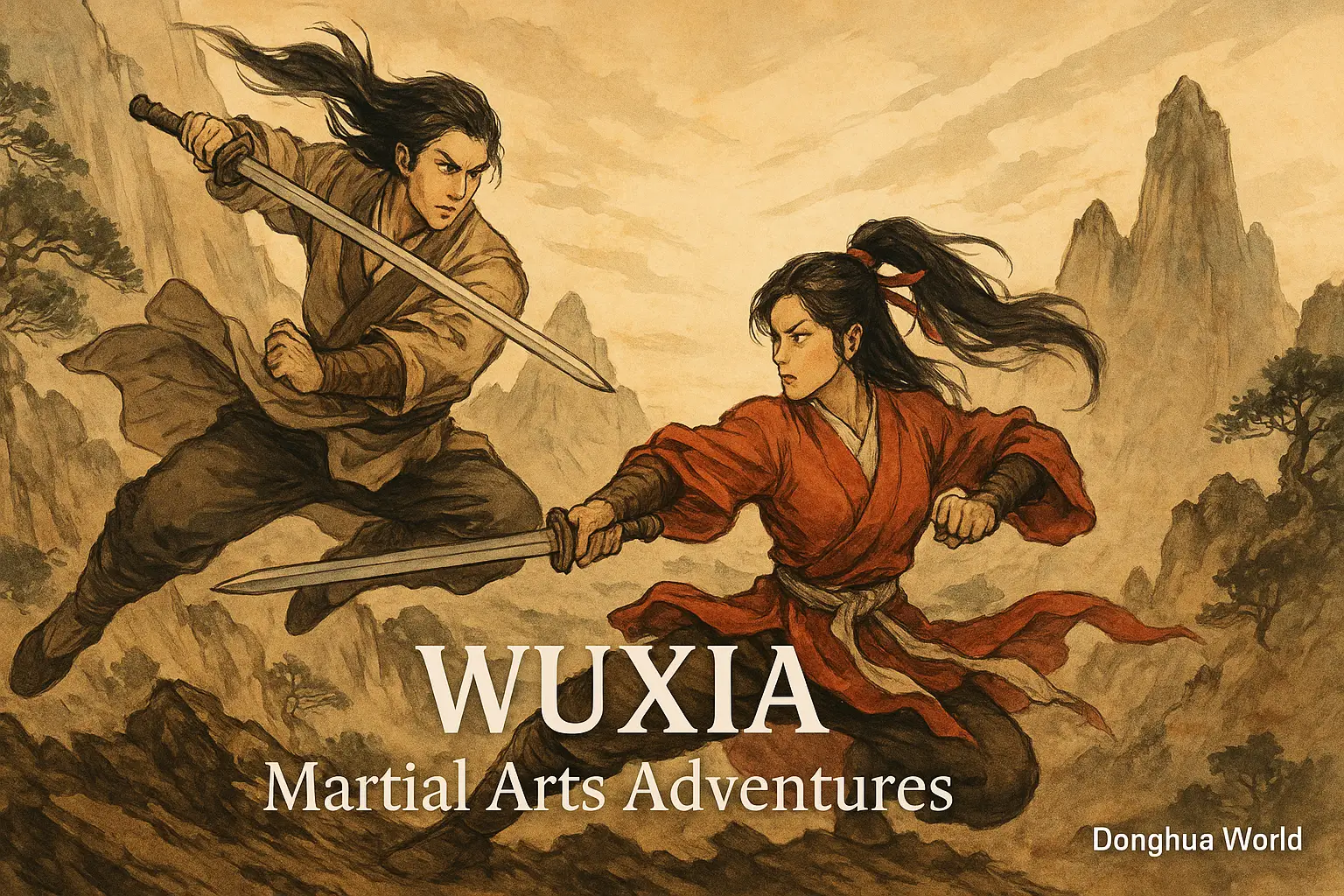Wuxia, pronounced “woo-shyah,” is a genre of Chinese fiction that translates to “martial heroes.” Rooted in Chinese folklore and classical literature, Wuxia stories chronicle the adventures of martial artists in a fantastical world filled with honor, loyalty, and mystical powers. Unlike typical martial arts narratives that focus purely on physical battles, Wuxia blends historical settings, romance, and elements of fantasy to create a vibrant and immersive experience.
Origins and Evolution
Wuxia has a rich history that stretches back centuries. It is deeply influenced by Chinese philosophical traditions, including Confucianism, Taoism, and Buddhism. Early Wuxia tales can be traced to ancient Chinese texts like “Water Margin” and “Romance of the Three Kingdoms,” which depicted the valor and chivalry of martial artists.
The modern Wuxia genre began to flourish in the early 20th century, with authors such as Jin Yong (Louis Cha) and Gu Long popularizing the form. Jin Yong’s novels, including “The Legend of the Condor Heroes” and “The Smiling, Proud Wanderer,” are considered classics that have shaped the landscape of Wuxia literature.
“Wuxia offers a window into the martial spirit of China, blending adventure with deep philosophical undertones,” notes Professor John Christopher Hamm, an expert in Chinese literature.
Key Themes and Elements
At the heart of Wuxia are themes of loyalty, justice, and personal honor. These tales are set in the Jianghu, a martial world that exists outside the conventional boundaries of Chinese society. The Jianghu is populated by wandering swordsmen, monks, and warriors who uphold their own codes of ethics.
The genre is known for its intricate martial arts techniques, often depicted in a near-mythical fashion. Characters frequently possess supernatural abilities, from flying on rooftops to wielding inner energy (Qi) to heal or harm.
The narrative structure of Wuxia often involves:
- A heroic protagonist: Typically a young martial artist on a journey of self-discovery.
- Complex rivalries: Conflicts between martial sects, secret societies, and hidden clans.
- Romantic subplots: Love stories that intertwine with the protagonist’s quest.
- Philosophical reflections: Insights into morality, loyalty, and personal growth.
Wuxia in Literature
The literary tradition of Wuxia is vibrant and expansive. Jin Yong’s works, in particular, have become cultural landmarks in China and beyond. His stories, rich with historical references and poetic prose, have been translated into multiple languages.
Gu Long, another influential author, brought a more modern and existential style to the genre. His stories are known for their concise prose and morally ambiguous characters, which marked a departure from traditional chivalric tropes.
Contemporary Wuxia literature continues to evolve, with authors exploring new themes while staying true to the core values of the genre. Modern adaptations often incorporate humor, social commentary, and even elements of science fiction.
Wuxia on Screen
Wuxia’s cinematic legacy is equally profound. From the classic films of King Hu, such as “A Touch of Zen,” to the groundbreaking works of Ang Lee’s “Crouching Tiger, Hidden Dragon,” Wuxia has found a new audience on the silver screen.
These films bring the poetic combat and philosophical depth of Wuxia to life. Choreographed fight scenes, wirework, and stunning visuals capture the grace and power of martial heroes in ways that honor the genre’s literary roots.
Wuxia television dramas, particularly in China, have also played a significant role in popularizing the genre. Series like “The Heaven Sword and Dragon Saber” and “The Return of the Condor Heroes” have captured the hearts of viewers with their intricate plots and sweeping visuals.
Cultural Significance
Wuxia is more than just entertainment; it is a cultural touchstone that reflects the values and aspirations of Chinese society. The genre celebrates the idea of the Xia, or martial hero, who stands up for justice and the weak, regardless of the personal cost.
In this way, Wuxia resonates with universal themes of courage, resilience, and the quest for a better world. It speaks to the eternal human desire for freedom and honor.
As Professor David Der-wei Wang of Harvard University states, “Wuxia’s enduring appeal lies in its ability to transform individual struggles into epic narratives of moral conviction.”
Modern Relevance
Today, Wuxia continues to inspire creators around the world. Its influence can be seen in video games, comics, and contemporary fantasy literature. Elements of Wuxia, such as the concept of inner energy and the honorable warrior, have become tropes in global pop culture.
Moreover, Wuxia serves as a bridge between traditional Chinese culture and modern audiences. It keeps alive ancient ideals while adapting to contemporary sensibilities, ensuring that the spirit of martial adventure remains relevant in today’s fast-paced world.
Conclusion
Wuxia stands as a testament to the power of storytelling. It weaves together history, philosophy, and fantasy to create a genre that is both timeless and ever-evolving. In its tales of martial valor and philosophical inquiry, Wuxia continues to inspire readers and viewers, inviting them to explore the boundless world of martial heroes and the eternal quest for honor.
By embracing the themes of loyalty, justice, and personal growth, Wuxia not only entertains but also enlightens, offering a unique window into the cultural soul of China and the universal human condition.
Whether experienced through literature, film, or other media, Wuxia invites us all to embark on a journey of martial adventure, where every swing of the sword and every choice of the heart shapes a world of wonder and honor.
